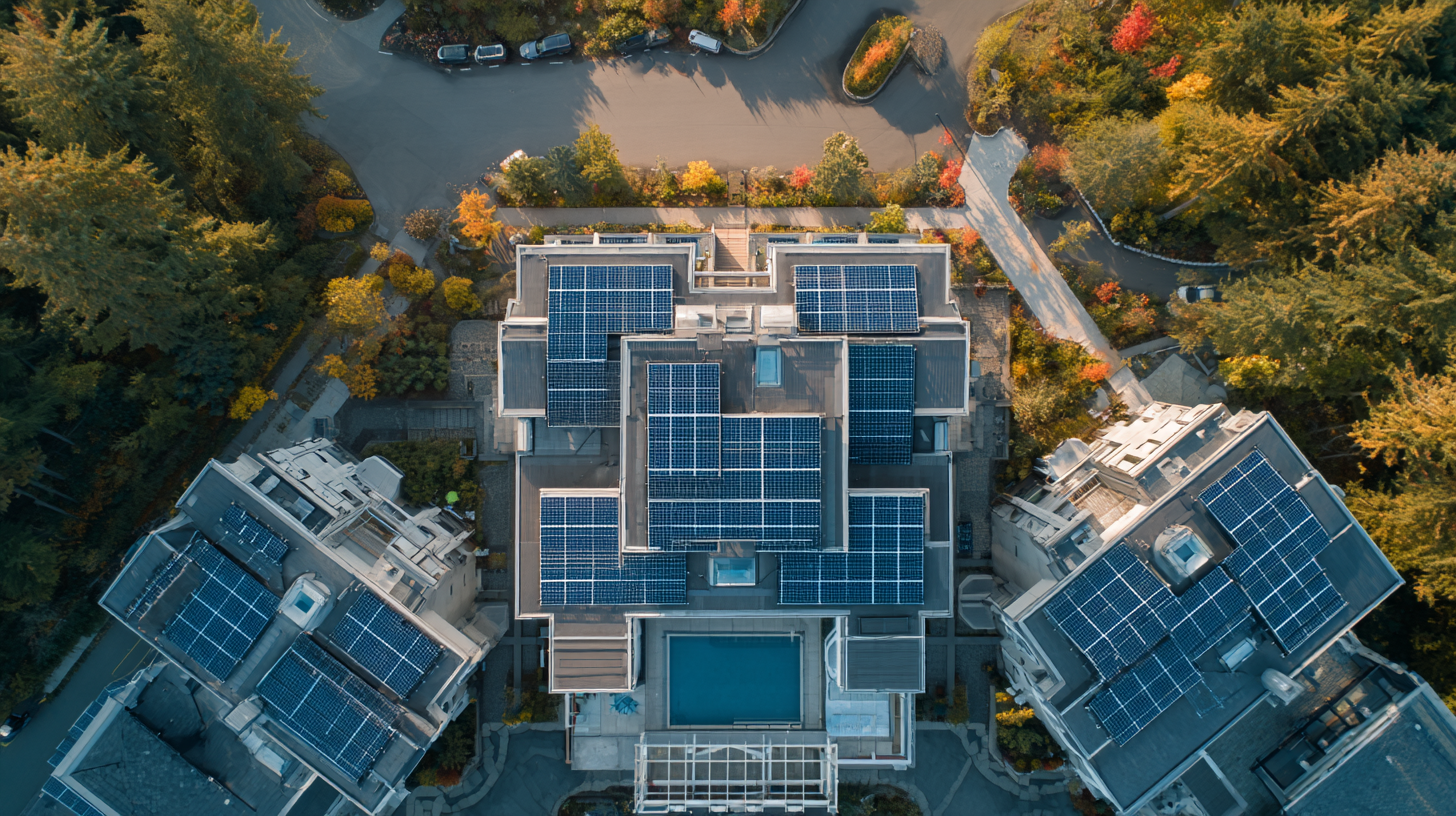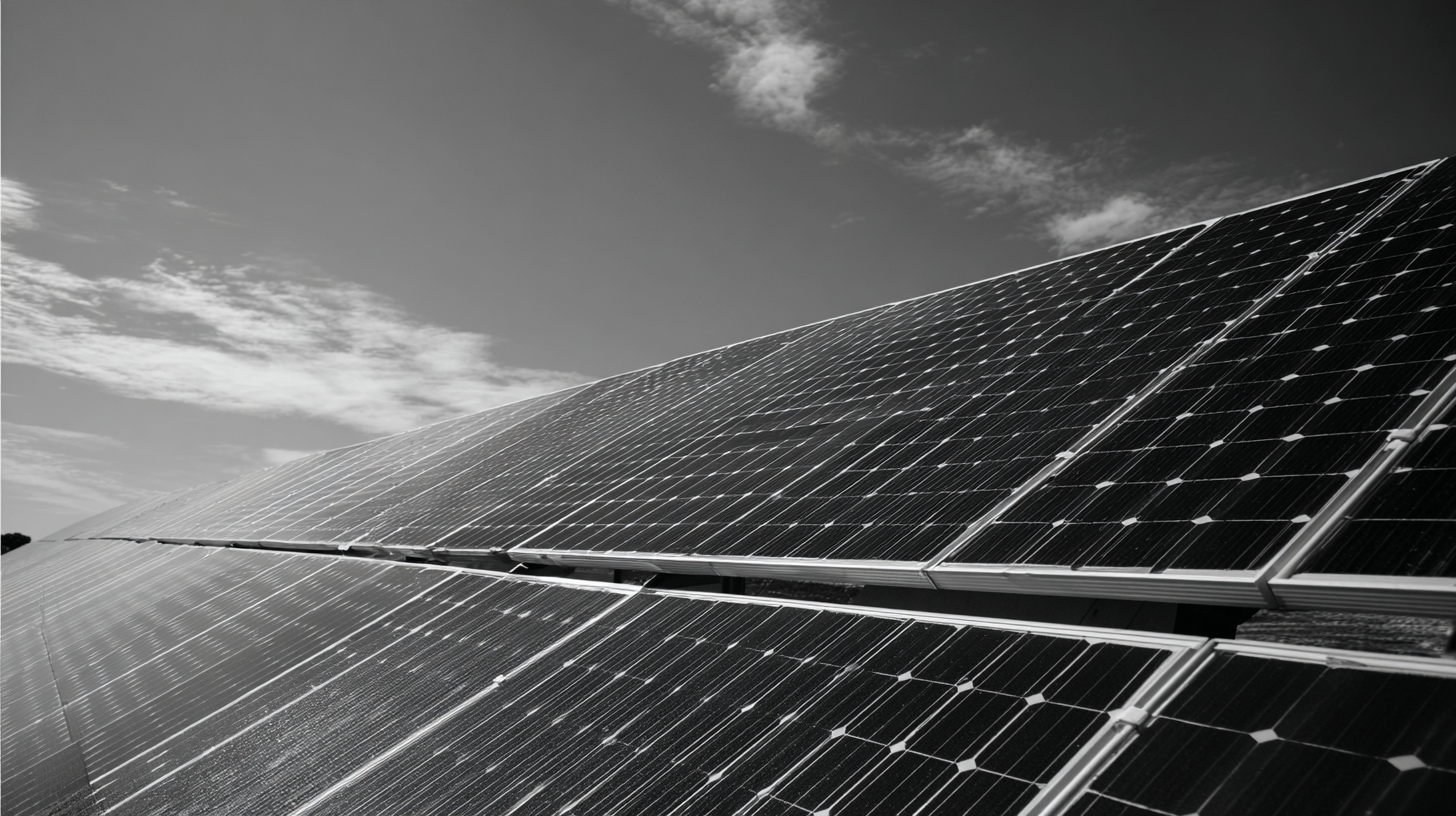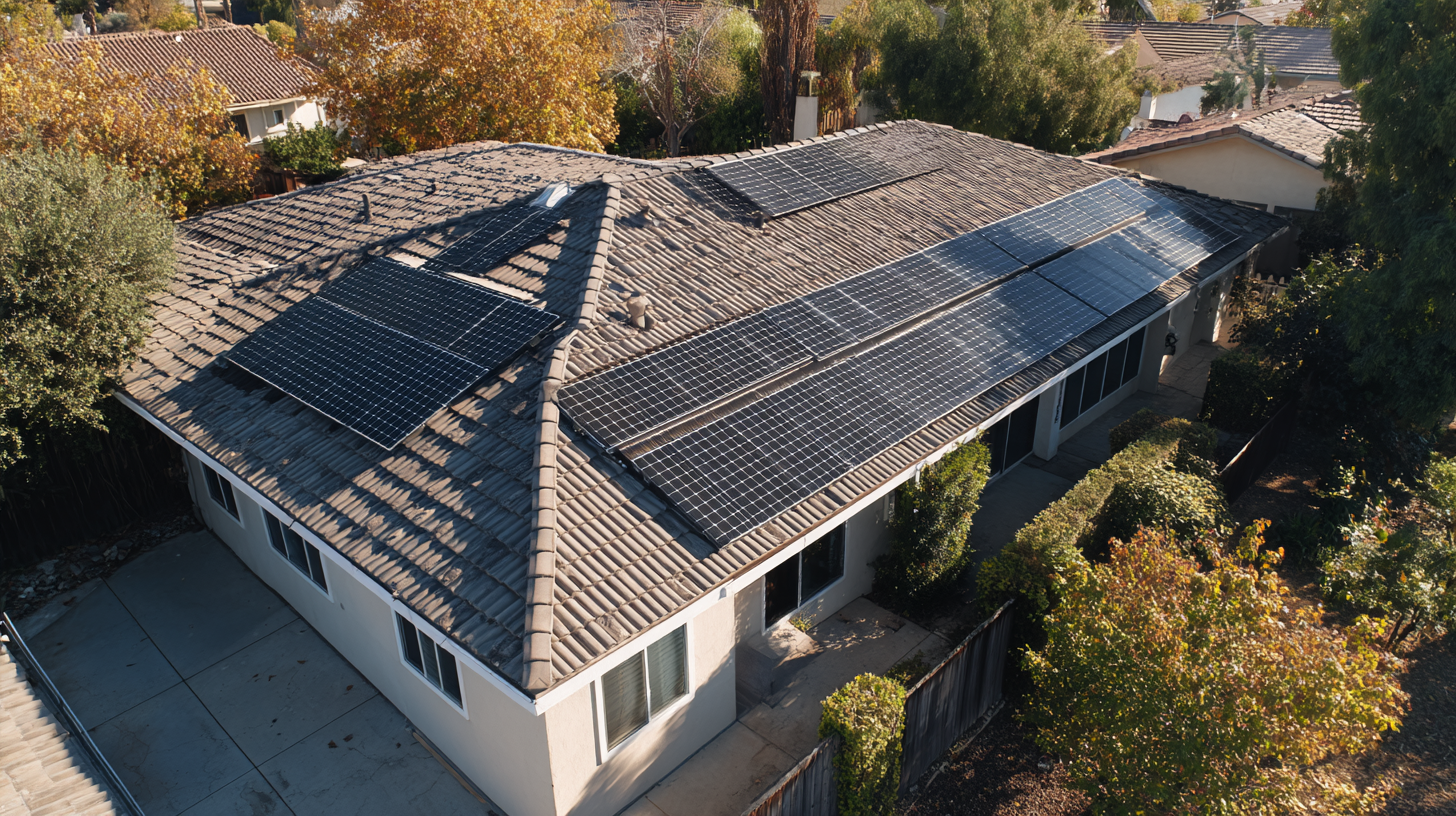Ultimate Guide to Choosing the Best Solar Energy Panels for Home That Meet Your Technical Needs
In an era where sustainable living and energy efficiency are becoming increasingly important, choosing the right solar energy panels for home use is a critical decision for homeowners. With a multitude of options available, each boasting various features and technologies, it can be overwhelming to determine which panels will best meet your technical needs. This ultimate guide aims to simplify the selection process by outlining essential factors to consider, including energy output, efficiency ratings, and warranty options. Whether you're looking to reduce your electricity bills, lessen your carbon footprint, or increase your property's value, understanding the intricacies of solar energy panels for home is crucial. Join us as we explore the solutions available, ensuring you make an informed choice that aligns with both your budget and energy goals.

Understanding the Different Types of Solar Panels: Monocrystalline, Polycrystalline, and Thin-Film
When selecting solar energy panels for your home, understanding the different types available is crucial to meeting your technical needs.
The three primary types of solar panels are
monocrystalline,
polycrystalline, and
thin-film, each with distinct advantages and disadvantages.
Monocrystalline panels, known for their high efficiency rates of around 15-22%, are made from single-crystal silicon, which allows them to occupy less space while producing more power. Reports indicate that these panels tend to have longer lifespans, often exceeding 25 years, making them a worthwhile investment for homeowners who prioritize durability.
On the other hand, polycrystalline panels are produced from multiple silicon crystals and generally have lower efficiency, ranging from 13-16%. However, they are more cost-effective, making them an attractive option for those working within a budget. Thin-film panels are the lightest and most flexible, but they usually have the lowest efficiency rates (around 10-12%) and may require more space for installation.
Tips: Assess your roof space and energy needs before deciding on the type of solar panel. If you have limited roof space and seek maximum output,
monocrystalline may be your best choice. Conversely, if lower initial costs are critical,
polycrystalline could serve you well. Always check the warranty and longevity data, as a longer lifespan can translate to better long-term savings.
Evaluating Efficiency Ratings: What You Should Know About Solar Panel Performance Metrics
When selecting solar panels for your home, understanding their efficiency ratings is key to making an informed decision. Efficiency, defined as the percentage of sunlight converted into usable electricity, is often a critical performance metric. According to the National Renewable Energy Laboratory (NREL), high-efficiency panels can convert up to 22% of sunlight into energy, compared to traditional panels that typically range from 15% to 18%. This difference could mean significant cost savings and energy efficiency for homeowners, especially in areas with limited space for solar installations.
Tip: Look for solar panels that have a high efficiency rating, as they maximize energy output per square foot, making them ideal for residential rooftops with space constraints.
Additionally, other performance metrics such as temperature coefficient and degradation rates are essential to consider. A low temperature coefficient signifies that a panel will perform better on hot days, which is crucial for overall energy production. Reports indicate that panels with lower degradation rates—typically around 0.3% to 0.5% per year—tend to end up with higher energy yields over their lifespan.
Tip: Evaluate warranty options as a guarantee for performance and longevity; a good warranty suggests confidence in the panel's quality and durability.
Cost Analysis: Comparing Installation Expenses and Long-Term Savings of Various Solar Panel Types
When considering the installation of solar energy panels for your home, a critical aspect to evaluate is the cost analysis, which encompasses both installation expenses and the long-term savings these systems can yield. According to a report by the U.S. Solar Market Insight, the average cost of solar panel installation has decreased by over 70% since 2010, making it more accessible for homeowners. On average, the installation cost ranges from $15,000 to $25,000, depending on the system size and type of panels chosen.

Different types of solar panels present varying installation costs and efficiency levels. Monocrystalline panels, praised for their high efficiency and sleek aesthetics, typically come at a premium price, averaging about $1,000 per installed kilowatt. In contrast, polycrystalline panels tend to be cheaper, around $800 per kilowatt, albeit with slightly lower efficiency rates. Over the lifespan of 25 to 30 years, homeowners can expect significant savings—roughly $20,000 to $50,000—on energy bills, particularly in states with high electricity rates. Thus, understanding the upfront costs in relation to potential long-term savings is crucial for making an informed decision that aligns with your financial and energy goals.
Assessing Durability and Warranty: Key Factors in Selecting Reliable Solar Panels for Your Home
When selecting solar energy panels for your home, understanding durability and warranty is paramount. A robust warranty not only reflects the manufacturer's confidence in their product but also serves as a safety net for homeowners. Typically, warranties span from 10 to 25 years, covering defects and ensuring performance. During this timeframe, it is vital to assess how the panels have fared against environmental stressors, as well as their degradation rate. Research indicates that panels performing well in challenging climatic conditions can provide greater longevity, making them a wise investment.
Additionally, exploring the operational maintenance aspects of photovoltaic systems helps in determining their reliability. Regular maintenance can significantly extend the lifespan of solar panels, enhancing their performance over time. When considering energy storage solutions in conjunction with solar panels, selecting a compatible and efficient system is equally important. A well-integrated setup not only ensures consistent energy supply but also maximizes the benefits of your solar investment. Consequently, thorough evaluation of warranty terms, panel durability, and maintenance requirements will lead to a more informed decision when choosing solar energy solutions for your home.
Durability and Warranty Assessment of Solar Panels
Exploring Technological Advancements in Solar Panels: Innovations for Enhanced Energy Production
As the demand for sustainable energy solutions grows, the technological advancements in solar panels have significantly improved energy production, making them more efficient and accessible for homeowners. Modern solar panels are equipped with innovative features such as bifacial technology, which allows them to capture sunlight from both sides, thereby increasing energy generation without requiring additional space. This type of panel is particularly effective in areas with reflective surfaces, maximizing the potential of available sunlight while minimizing the environmental footprint.
In addition to bifacial designs, the introduction of thin-film solar cells is revolutionizing the industry. These lightweight panels can be integrated into various surfaces, from roofs to windows, enabling more versatile applications in residential settings. Moreover, advancements in energy storage technology have provided homeowners with the ability to store surplus energy generated during the day for use at night or during cloudy weather, ensuring a reliable energy supply year-round. With continuous innovation in solar technology, homeowners can confidently choose solar energy systems that not only meet their technical needs but also contribute to a sustainable future.
